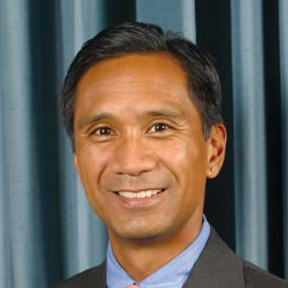Recently, Secretary of Defense Donald Rumsfeld announced that U.S. troops will train Afghan army troops in “basic soldier skills.” The rationale for the training is to assist the interim central government led by Hamid Karzai to build a new army as a way to maintain stability in Afghanistan. On the surface, this seems like a reasonable enough proposal.
Clearly, the announcement is a result of the decision by the United States and its coalition allies not to expand the international peacekeeping force, which now totals about 5,000 troops, beyond Kabul. The Pentagon rightly opposed committing any U.S. troops to such an effort. But since the United States can’t be seen as “doing nothing” to help Karzai assert authority and control over the powerful regional warlords and militias, what’s the harm in training Afghans to be soldiers?
There is considerable potential harm. Training Afghan soldiers is the first step towards full-fledged peacekeeping and nation building. Taking that first step may be like getting “a little bit pregnant”—the responsibility of peacekeeping and nation building may be inevitable and unavoidable (especially if the newly trained army is unable to prevail against the regional militias). As a result, U.S. forces are likely to be drawn into Afghanistan’s internal power struggles (exactly what the United States seeks to avoid by not committing troops to the international peacekeeping efforts), thus creating incentives and targets for terrorism. In the end, it is impossible for an intervening party’s actions (no matter how well-intentioned) from altering the power calculations of all the rival factions. Invariably, the outside party will do something that is seen as benefiting one side’s interests at the expense of all others’. And the outside party then becomes a target for violence. The U.S. military presence in Lebanon in the early and mid-1980s and Somalia in the early 1990s are examples of this phenomenon.
While it would be preferable to have a representative, multi-ethnic, democratic government in Afghanistan, that is not essential to American interests. Ultimately U.S. national security is served as long as whatever government controls Afghanistan understands that the United States will not tolerate support for or the harboring of al-Qaeda or any other terrorist group that threatens the United States. Operation Enduring Freedom serves as a lesson to any pretenders to the throne: A repeat performance of the Taliban regime will result in their same fate.
And it does not necessarily follow that if there is not a representative, multi-ethnic, democratic government in Afghanistan, the country will automatically revert to the previous Taliban regime sympathetic to al-Qaeda. To be sure, there would likely be a fierce power struggle—most likely between the Tajik-dominated Northern Alliance and the Pashtuns (the single largest ethnic group in Afghanistan). Although anathema to the West, such ethnic rivalries and power struggles are the norm for Afghanistan. And while this is certainly not the ideal outcome, it might actually result in a more stable internal balance of power—and one that does not support terrorism.
There are those who argue that the United States must “do something” to prevent Afghanistan from reverting to form. But outside intervention and meddling in internal Afghan politics are largely the cause of the problem. The truth is that Afghanistan was a relatively stable country from 1930 through 1978 (even though it did not have a multi-ethnic, representative, democratic government). The emergence of the Taliban regime that supported al-Qaeda was due almost entirely to outside interests and influences. First, the Soviets tried to exert control over Afghanistan. Then the United States—as part of its Cold War strategy to contain expansionist Soviet communism—supported the anti-Soviet mujahideen who turned out to be the most extreme Islamic radicals. They had no real affinity for the United States but were merely happy to accept U.S. guns and bullets to expel the Soviets. Finally, Pakistan’s internal security services (ISI) helped install the Taliban in post-Soviet Afghanistan to secure Islamabad’s strategic interests in the region. Therefore, the real lesson is not that the United States hasn’t done enough and needs to do more, but that there has already been enough outside meddling in Afghanistan.
Training Afghan soldiers may be a well-intentioned idea. But it amounts to peacekeeping lite. It would be the first step of the United States being drawn into yet another unnecessary intervention in the internal affairs of another country.







